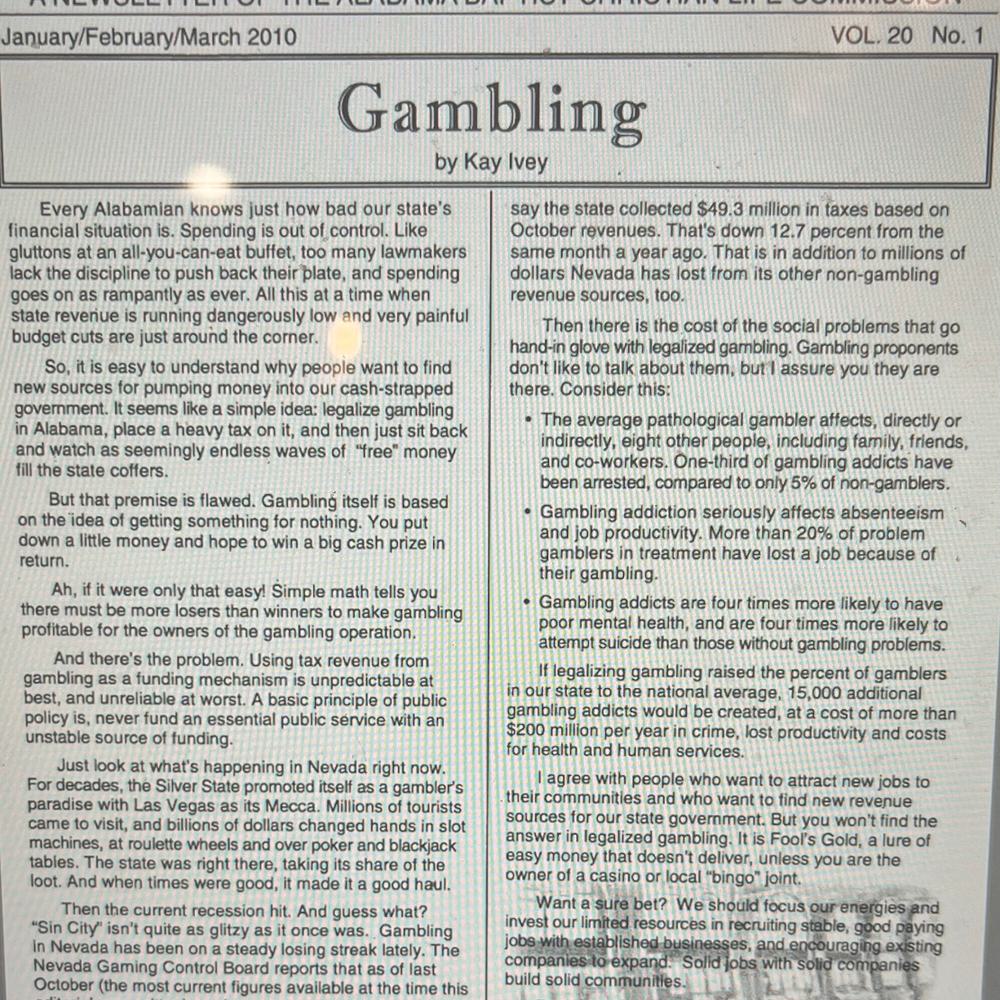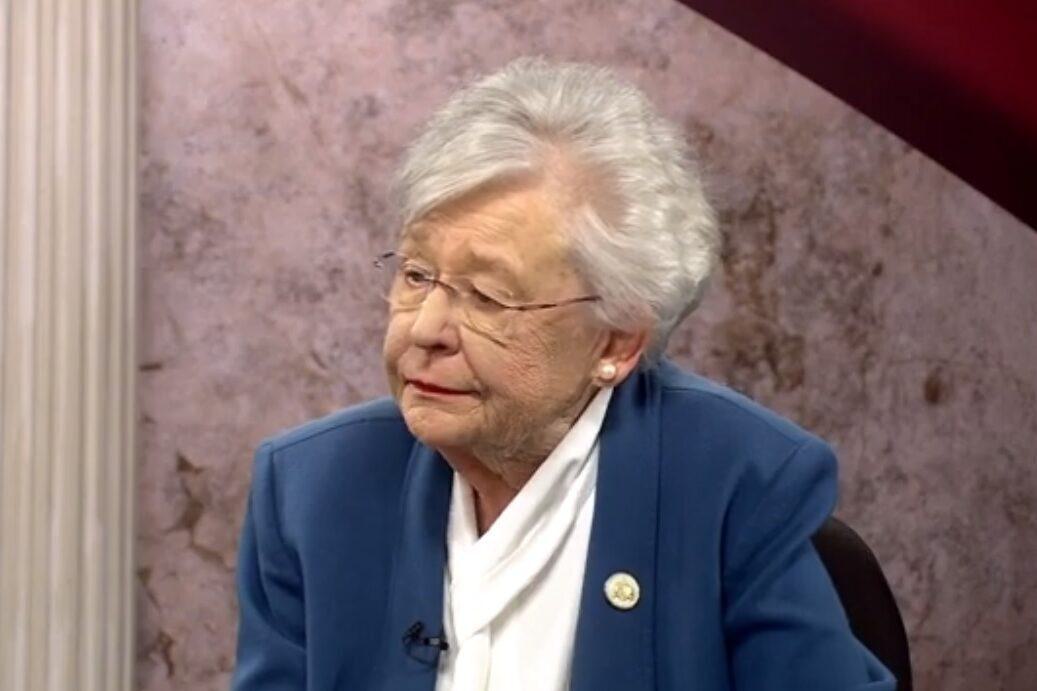On Friday's broadcast of Alabama Public Television's "Capitol Journal," Gov. Kay Ivey weighed in on the first two weeks of the legislative session, which included the House of Representatives' passage of a comprehensive package she endorsed.
The legislation, awaiting consideration by the Alabama Senate, includes amending the Alabama Constitution, legalizing casino gaming in specified locations, a lottery and sports betting.
SEE ALSO: Alabama House of Representatives handily approves comprehensive gambling legislation
Host Todd Stacy asked Ivey to respond to those with "concerns" about gambling, including corruption, addiction, family breakdown and the policy approach prescribed in the legislation.
"How do you respond to those arguments from opponents who are pretty passionately against expanded gambling?" Stacy asked.
"Well, they don't have to gamble, in the first place," Ivey replied. "The idea is to give the people the right to have a vote and let us have their say in this measure. And I just believe that if we limit, regulate and control and enforce, we can have a system that works for the people of Alabama and most important is a good deal for the State of Alabama. So, I'm working hard on this."
That is a much different tone on gambling than that of then-State Treasurer Kay Ivey, who, on multiple occasions, expressed her opposition to legalized gambling in Alabama.
In a 2010 essay for Christian Life Report, the newsletter of the Alabama Baptist Christian Life Commission, Ivey not only rejected gambling as a revenue source for "cash-strapped government," she decried the social costs of gambling.
She wrote:
Then there is the cost of the social problems that go hand-in glove with legalized gambling. Gambling proponents don't like to talk about them, but I assure you they are there. Consider this:
• The average pathological gambler affects, directly or indirectly, eight other people, including family, friends and co-workers. One-third of gambling addicts have been arrested, compared to only 5% of non-gamblers.
• Gambling addiction seriously affects absenteeism and job productivity. More than 20% of problem gamblers in treatment have lost a job because of their gambling.
• Gambling addicts are four times more likely to have poor mental health, and are fourth times more likely to attempt suicide than those without gambling problems.
If legalized gambling raised the percent of gamblers in our state to the national average, 25,000 additional gambling addicts would be created, at a cost of more than $200 million per year in crime, lost productivity and costs for health and human services.

Ivey was also vocal about gambling during her 2010 lieutenant gubernatorial bid against then-incumbent Lt. Gov. Jim Folsom, Jr.
In a Q&A published on AL.com, Ivey voiced her support for an up-down vote on gambling. However, she rejected a bill "written by casino owners and gambling lobbyists."
"The rulings of the Alabama Supreme Court have been clear in what constitutes and does not constitute gaming. If the Legislature calls for a constitutional vote, I fully support letting the people have an up-down vote on the gambling issue. But the public must have a clean bill to vote on - not one written by casino owners and gambling lobbyists.'
Jeff Poor is the editor in chief of 1819 News and host of "The Jeff Poor Show," heard Monday-Friday, 9 a.m.-noon on Mobile's FM Talk 106.5. To connect or comment, email jeff.poor@1819News.com or follow him on Twitter @jeff_poor.
Don't miss out! Subscribe to our newsletter and get our top stories every weekday morning.










